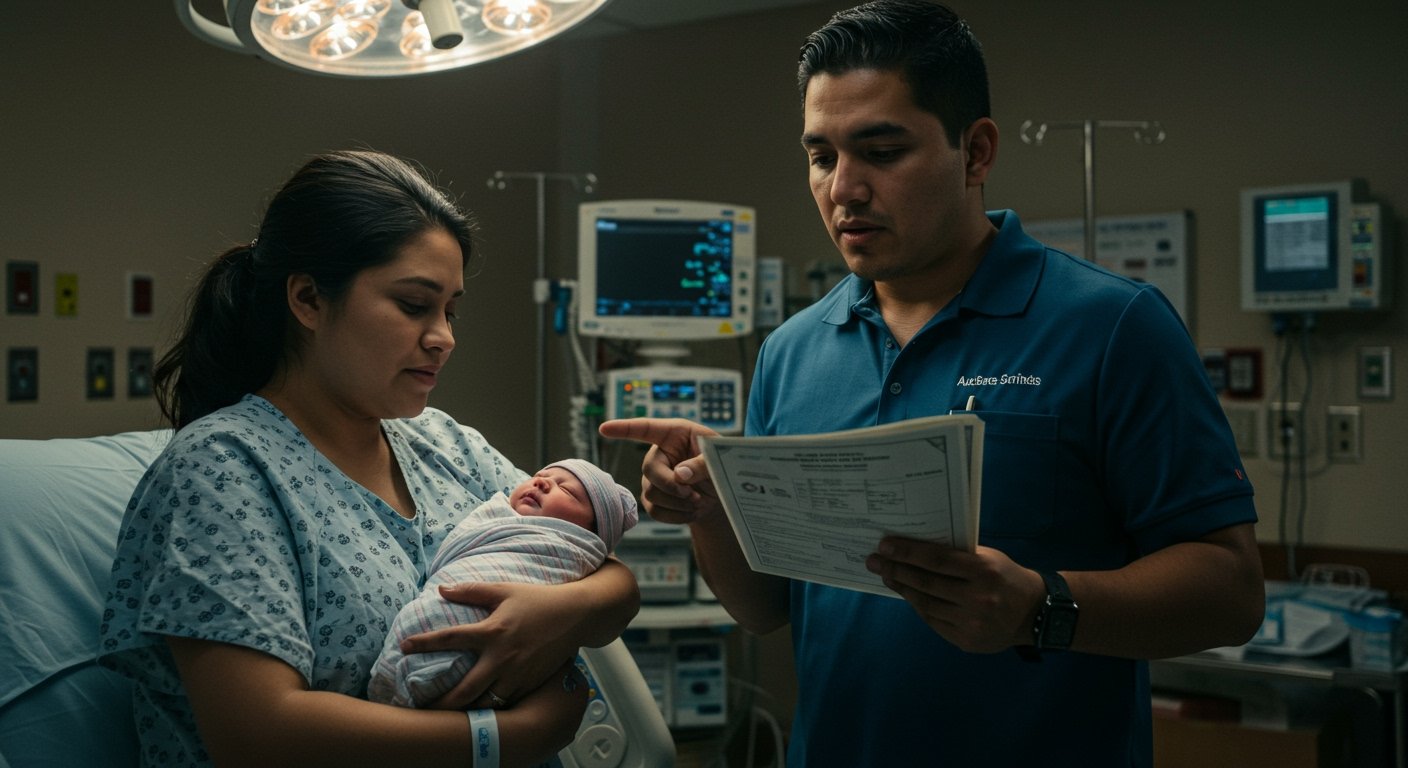A significant shift in U.S. immigration policy appears poised to impact families across Texas in the coming weeks, following a pivotal decision by the nation’s highest court.
On Friday, June 27, 2025, the U.S. Supreme Court, in a 6-3 ruling, cleared the way for an executive order issued by President Donald Trump aimed at ending birthright citizenship. This ruling effectively ended a nationwide injunction that had previously blocked the order’s implementation.
Consequently, the executive order is now positioned to potentially take effect in certain states within 30 days of the ruling. Texas is among 28 states that have not pursued legal challenges against the executive order, meaning families in the state could be among the first to face the practical consequences of the policy change starting next month.
The Supreme Court’s Decision and Immediate Aftermath
The Supreme Court’s decision did not directly rule on the constitutionality of the executive order itself, but rather lifted the legal barrier that prevented its enforcement nationwide. By dissolving the injunction, the court has allowed the order to move forward in jurisdictions where it is not otherwise blocked by state-level litigation.
This development has immediately sent ripples of concern through Texas. Immigrant rights activists, local elected officials, and health care administrators within the state have voiced apprehension regarding the impending deadline. They anticipate significant bureaucratic obstacles that will confront parents attempting to secure U.S. citizenship for their newborns.
Advocates for immigrant families have been particularly vocal about the potential challenges. They warn that if the order takes effect, it could fundamentally alter the process of establishing citizenship for infants born within U.S. territory, a right traditionally guaranteed by the 14th Amendment of the Constitution.
Anticipating Bureaucratic Hurdles in Texas
The core concern among stakeholders in Texas centers on the practical difficulties that families will face. Currently, birthright citizenship means that most individuals born on U.S. soil are automatically granted citizenship, regardless of their parents’ immigration status.
The Trump administration’s executive order seeks to modify or reinterpret the application of this principle, potentially requiring parents to demonstrate their own citizenship or lawful permanent residency status to establish their child’s U.S. citizenship at birth.
Health care administrators are bracing for new protocols and potential confusion in hospital delivery rooms. The logistical challenge of verifying parental immigration status for every birth could place a significant burden on medical staff and administrators, diverting resources and potentially causing delays or complications in the process of obtaining birth certificates and establishing a child’s identity.
Local elected officials in communities with diverse populations have expressed worries about the impact on their constituents. They foresee increased stress and uncertainty for families, as well as potential strain on local resources as individuals seek assistance navigating the new requirements.
One advocate quoted in the original summary succinctly captured the breadth of the potential impact, stating, “It will affect all families.” This highlights the concern that even U.S. citizen parents might face new hurdles or requirements to prove their status in the hospital setting, creating a universal layer of complexity.
The Call for Proof: A Potential New Reality
A key warning from advocates is the potential requirement for all families, irrespective of their immigration status, to prove citizenship or lawful permanent residency while in the hospital for childbirth. This marks a potential departure from current practice, where the focus is on the child’s birth location.
Implementing such a requirement could necessitate hospitals developing new procedures for collecting and verifying parental documentation. For families, it means ensuring they have readily accessible proof of status, such as passports, birth certificates, or green cards, during what is already a demanding and sensitive time.
There are concerns that this requirement could disproportionately affect vulnerable populations, including low-income families, those without easy access to official documents, or those who may be hesitant to provide sensitive personal information in a healthcare setting due to fears related to immigration enforcement.
Legal Resistance Takes Shape
In the wake of the Supreme Court’s decision, civil and immigrant rights groups have rapidly mobilized. Recognizing the short timeline before the order could take effect in states like Texas, a coalition of these organizations has filed a class-action lawsuit against the Trump administration.
The lawsuit was filed specifically in response to the ruling that lifted the nationwide injunction. The groups are seeking a potential new nationwide injunction to prevent the order’s implementation altogether. This legal challenge represents the primary effort currently underway to block the executive order before it fundamentally alters the process of acquiring citizenship at birth.
The litigation is expected to argue against the executive order on various grounds, potentially including constitutional challenges to the administration’s interpretation of the 14th Amendment and statutory arguments regarding the limits of executive authority in defining citizenship.
Broader Implications and Uncertainty
The debate over birthright citizenship is deeply rooted in American history and legal interpretation. The 14th Amendment, ratified after the Civil War, states that “All persons born or naturalized in the United States, and subject to the jurisdiction thereof, are citizens of the United States.” For generations, this has been widely understood to grant citizenship to children born on U.S. soil, regardless of parentage.
The Trump administration’s executive order and the subsequent legal battles reflect a differing interpretation of the phrase “subject to the jurisdiction thereof.”
As the 30-day window following the Supreme Court ruling closes in, the situation for Texas families remains uncertain. The outcome of the class-action lawsuit is critical; if it succeeds in obtaining a new nationwide injunction, the implementation of the executive order would be halted once again.
However, without such an intervention, the bureaucratic and practical challenges anticipated by immigrant rights advocates, local officials, and health care administrators in Texas are set to become a reality next month, potentially impacting countless families navigating the process of welcoming a new child into the world and confirming their citizenship status.






